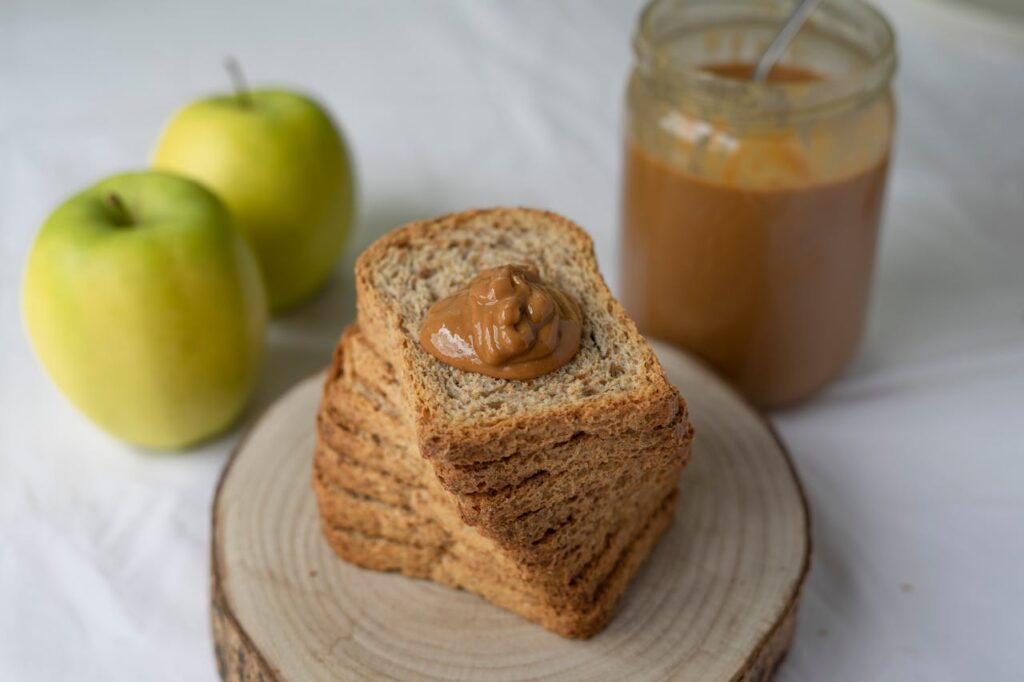Empowering Lifestyle Transformation
The Power of Whole Foods: A Guide to Balanced Nutrition
Hey there! Welcome to “The Power of Whole Foods: A Guide to Balanced Nutrition.” Let’s explore how incorporating whole foods into your daily routine can boost your health, energy, and overall well-being.


The Power of Whole Foods: A Guide to Balanced Nutrition
Whole foods are simply foods that are as close to their natural state as possible. They are minimally processed and free from additives, preservatives, and artificial ingredients. Think fresh fruits and veggies, whole grains, lean proteins, nuts, and seeds.
These foods are packed with essential nutrients like vitamins, minerals, fiber, and phytochemicals (plant compounds with health benefits).
Why Whole Foods are a Game-Changer
Why are whole foods so amazing? It’s pretty straightforward. Whole foods provide your body with the nutrients it needs to thrive. By incorporating them into your diet, you can support your immune system, improve digestion, and reduce the risk of chronic diseases like heart disease, diabetes, and certain types of cancer. Plus, whole foods can help you maintain a healthy weight since they’re generally lower in calories and higher in fiber compared to processed foods.
Understanding Whole Foods
So, what exactly are whole foods? Simply put, they are unprocessed or minimally processed foods that are as close to their natural state as possible. Whole foods are nutrient-dense, meaning they’re packed with essential vitamins, minerals, and antioxidants that support various bodily functions.
By incorporating more whole foods into your diet, you can boost your immune system, promote healthy digestion, and improve your body’s ability to fight off diseases.
Unlike processed foods that often contain added sugars, unhealthy fats, and artificial additives, whole foods are pure sources of nutrition. They offer a rich combination of healthy fats, proteins, and complex carbohydrates, as well as essential vitamins and minerals.
Fresh fruits, vegetables, whole grains, lean proteins, and legumes retain their valuable nutrients and fiber content, providing you with wholesome and nourishing meals.
The Key Components of a Balanced Diet
A balanced diet is essential for a healthy lifestyle. Here are the key components that make a diet balanced, and how whole foods can help you achieve optimal nutrition:
Macronutrients: These include carbohydrates, proteins, and fats. It’s important to include a variety of these in your meals to ensure you’re getting a good balance of energy, muscle-building nutrients, and essential fatty acids.
Micronutrients: These are the essential vitamins and minerals your body needs in smaller quantities. Whole foods like fruits, vegetables, and whole grains are excellent sources of micronutrients.
Fiber: This type of carbohydrate helps maintain a healthy digestive system, regulates blood sugar levels, and promotes satiety. Whole foods like legumes, whole grains, and fruits and vegetables are high in fiber.
Hydration: Staying hydrated is crucial for overall health. Water helps regulate body temperature, aids digestion, and transports nutrients throughout the body. Remember to drink enough water each day and choose water-rich whole foods like cucumbers and watermelon.
By focusing on these key components, you can ensure that your diet is well-rounded and provides all the necessary nutrients for optimal health.
The Benefits of a Whole Food Plant-Based Die
In this TEDx talk at John Lyon School, Mick Walker delves into the benefits of a whole food plant-based diet. He explains how this diet can improve health, boost energy, and contribute to overall well-being, while also addressing common misconceptions and offering practical tips for making the transition.
Perfect for anyone interested in nutrition and healthy living.
The Science Behind Whole Foods
Understanding the science behind whole foods helps you appreciate how they nourish your body on a cellular level. Whole foods are natural and unrefined, meaning they haven’t undergone extensive processing or had any artificial additives included. They’re packed with vitamins, minerals, and antioxidants that contribute to your overall well-being.
Research shows that whole foods contain bioactive compounds that positively affect health. For instance, fruits and vegetables are rich in phytochemicals that act as antioxidants and support various bodily functions, including immune function and cellular repair.
Whole grains provide dietary fiber, which aids digestion and helps regulate blood sugar levels. Consuming whole grains can also reduce the risk of heart disease, obesity, and certain types of cancer.
The nutrient-dense nature of whole foods supports brain health, enhances cognitive function, focus, and productivity. Omega-3 fatty acids found in certain whole foods, like walnuts and seeds like chia, hemp and flax, may positively impact mood regulation and overall mental clarity.
By incorporating a variety of whole foods into your diet, you create a harmonious balance of nutrients that support your body’s overall health.
Incorporating Whole Foods into Your Daily Routine
Maintaining a healthy lifestyle means seamlessly integrating whole foods into your daily meals. Here are some practical tips and techniques to guide you:
Plan Your Meals in Advance: Meal planning is key to a successful whole foods-based diet. Take some time to plan your meals ahead so you have a variety of whole foods on hand.
Start with Simple Swaps: Transitioning to a whole foods diet doesn’t have to be overwhelming. Start by making simple swaps in your meals, like replacing processed snacks with fresh fruits or raw nuts, or opting for whole grain alternatives to refined grains.
Experiment with Whole Food Recipes: Explore the world of whole food recipes and discover delicious and nutritious meals. Try incorporating more fruits, vegetables, whole grains, legumes, and lean proteins into your recipes.
Shop at Local Farmers Markets: Support local farmers and source your whole foods from farmers markets. You’ll have access to fresh, seasonal produce and connect with the people who grow your food.
Embrace Whole Foods as Snacks: Snacking on whole foods throughout the day can help keep your energy levels stable and curb unhealthy cravings. Keep a stash of whole foods, like carrot sticks, cherry tomatoes, mixed nuts, for convenient and nutritious snacks.

Smart Snacking
Mix and match carrots with hummus or apples with nut butter. My favourite is dates with almond butter perfect for a snack before or after workouts.
Whole Foods for Different Dietary Needs
Whole foods are incredibly versatile and can cater to various dietary needs, whether you follow a specific eating plan or have dietary restrictions.
For vegetarians and vegans, whole foods can provide essential nutrients without the need for animal products. Incorporate plant-based proteins like legumes, nuts, and seeds into your meals to meet your protein requirements. Fruits, vegetables, and whole grains supply the vitamins and minerals your body needs.
For those on a gluten-free diet, whole foods offer a wide range of options. Choose gluten-free grains like quinoa, rice, and oats for delicious and nutritious meals. Fresh fruits, vegetables, lean proteins, and healthy fats are also safe choices.
If you have specific dietary restrictions, such as lactose intolerance or food allergies, whole foods can be a safe and nutritious choice. Opt for alternatives like almond milk or coconut milk instead of dairy products. Focus on fresh, unprocessed foods and read labels carefully to avoid potential allergens or intolerances.
Clean Eating and Whole Foods
Clean eating is more than a trend—it’s a lifestyle choice that can profoundly impact your overall health and well-being. By understanding the principles of clean eating and incorporating clean eating essentials into your daily routine, you can optimize your nutrition and support your body’s natural processes.
Clean eating focuses on consuming whole, minimally processed foods that are as close to their natural state as possible. This means avoiding highly processed, packaged foods loaded with additives, preservatives, and artificial ingredients. Instead, clean eating promotes fresh fruits and vegetables, lean proteins, whole grains, and healthy fats.
One key benefit of clean eating is that it supports optimal digestion and nutrient absorption. Whole foods are rich in fiber, which aids in digestion and promotes regular bowel movements. They’re also packed with vitamins, minerals, and antioxidants that support immune function and protect against chronic diseases.
Meal Planning with Whole Foods
Meal planning is an essential tool in maintaining a healthy eating guide and following balanced diet advice. Here are some practical strategies to help you effectively meal plan with whole foods:
Grocery Shopping with a Plan: Before heading to the store, plan your meals for the week and make a detailed shopping list. This helps you avoid impulse purchases and stay focused on buying nutrient-rich foods.
Batch Cooking for Convenience: Dedicate a few hours on a weekend to cook meals in bulk. Portion them out into containers and store them in the fridge or freezer, ready to grab during busy weekdays.
Variety and Flexibility: Incorporate a variety of ingredients to ensure a balanced diet. Experiment with different recipes, cuisines, and cooking techniques to keep meals interesting.
Prepping in Advance: Wash, chop, and portion out fruits and vegetables each week. Pre-cook staples like grains, legumes, and proteins to save time during busy evenings.
Quick High-Protein Vegan Meal Prep in 1 Hour
In this video, learn how to prepare a week’s worth of high-protein vegan meals in just one hour! Perfect for busy schedules, this meal prep guide provides quick and easy recipes packed with plant-based protein to keep you energized and satisfied throughout the week.
Shopping for Whole Foods
Shopping is a crucial step in incorporating whole foods into your diet. Understanding how to navigate the grocery store, read food labels, and identify the best sources of whole foods can help you make informed choices and stock your kitchen with wholesome ingredients.
Start by focusing on the perimeter of the store, where fresh produce, meats, dairy, and whole grains are usually located. Fill your cart with a variety of colorful fruits and vegetables, lean proteins, and whole grains.
When selecting packaged items, always read the labels. Look for products with minimal ingredients and avoid those with added sugars, unhealthy fats, and artificial additives.
In this article read all about Shop Smarter, Eat Cleaner.
Overcoming Common Challenges
Incorporating whole foods into your daily routine can sometimes present challenges, but with practical tips and solutions, you can overcome these obstacles and maintain a healthy lifestyle.
Time Management: Busy schedules can make it difficult to prepare whole foods meals. Combat this by batch cooking, prepping ingredients in advance, and using time-saving kitchen gadgets like slow cookers or pressure cookers.
Cost Considerations: Whole foods can sometimes seem expensive, but there are ways to eat well on a budget. Buy seasonal produce, take advantage of sales, and consider joining a local food co-op or community-supported agriculture (CSA) program for affordable access to fresh, local foods.

Cravings for Processed Foods
Cravings for processed foods are normal, especially during the transition to a whole foods diet. Combat this by having healthy snacks readily available, staying hydrated, and allowing yourself occasional treats in moderation.
Conclusion
Congratulations! You’ve taken the first step towards a healthier, more balanced life by exploring the power of whole foods. By incorporating these nutrient-dense, minimally processed foods into your diet, you’re giving your body the essential nutrients it needs to thrive.
Remember, the journey towards a healthier lifestyle is a gradual process. Start with small changes, be patient with yourself, and enjoy the benefits of a whole foods-based diet. Here’s to a healthier, happier you!
“Let’s strive to do our best on our journey through life: spreading joy, savouring good food, embracing fitness, and finding peace through meditation for a fulfilling existence.”
*The information provided here is for educational purposes only and does not constitute medical advice. Always consult with a qualified healthcare professional before starting any new fitness regimen or making changes to your existing exercise routine, especially if you have any underlying health conditions or concerns.
**As an Affiliate/Amazon Associate, I may earn from qualifying purchases. Please note that I only recommend tools that I personally use and love and I always have my readers’ best interest at heart.

Book Recommendation
In “How Not to Age,” renowned physician Dr. Michael Greger explores the latest scientific research on aging and longevity. Packed with practical advice and evidence-based strategies, this ground-breaking book offers readers a comprehensive guide to slowing down the aging process and living a healthier, longer life.
Core Values
Guiding Principles for Transformation
Empowerment
We empower individuals to take charge of their well-being and lead a purpose-driven life through education, support, and guidance.
Holistic Wellness
We believe in nurturing the mind, body, and spirit to achieve a balanced and harmonious state of well-being for overall health.
Community Connection
We foster a supportive community that encourages collaboration, growth, and mutual empowerment on the journey towards a healthier, more fulfilling life.
Begin Your Wellness Adventure Now
Join us on the path to a healthier and more fulfilling life. Take the first step now!
